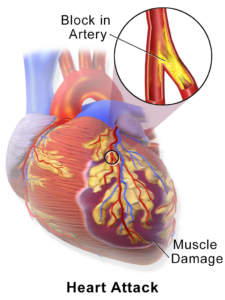Human Genetic Factors decide for Covid-19 Infection

Dr. Juni Banerjee. Neucrad Health Desk, February 16, 2021
The number of deaths for the elderly people due to Covid-19 pandemic is very high around the globe. Of note, a huge number of Covid-19 positive diagnosed patients with complications of diabetes, high blood pressure, lung diseases, etc., have also died due to co-morbidity reasons. Recently, human genetics research has revealed a connection between the rate and severity of Covid-19 infection with the genetic makeup of each person, and their expression patterns. Let’s try to understand more about it here.
Genetic variant and Covid-19 infection
As we know that the Covid-19 patients who do not show any specific disease symptoms or shows very mild symptoms, fall in the ‘asymptomatic’ category. However, for the rest of the symptomatic Covid-19 positive patients, the symptoms and illness can be severe taking terrible turns. The obvious question that came to the minds of the Scientists is whether this phenomenon has something to do with the human genetic make-up or not!
Genome-Wide Association Study” (GWAS)
Scientists have conducted research to specifically find out any probable link between the expressions of human-specific ‘genetic variants’ with the novel coronavirus and the manifestation of disease symptoms. Their research study utilized the “Genome-Wide Association Study” (GWAS) approach. GWAS approach is often used in genetics research to associate particular genetic variations with specific diseases. This method involves scanning a number of people’s genomes and identify any specific genetic markers which can predict the presence of the disease. With the help of the identified genetic markers, it is easy to understand the gene’s contributions to the disease and develop prevention and treatment strategies accordingly.
GWAS and Covid-19
In this particular research study, a total of 65,72,98 ‘single nucleotide polymorphisms’ (SNPs) were identified from 1,960 Covid-19 positive patients from different pandemic epicentres of Europe. Analysing the data indicated not 1-2 but many genes collectively referred to as ‘multi-gene clusters’ are behind the Covid-19 infection’s association with humans genetic-makeup. These multi-gene clusters have been identified on human’s 3rd chromosomes. Following are some of the important discoveries:
- The LZTFL1 (Leucine Zipper Transcription Factor Like 1) gene is expressed in lung cells.
- The SIT1 (sodium – imino acid transporter 1) gene has been shown to play an important role in the transmission of Covid-19 disease. The SIT1 gene produces a special protein called SLC6A20. This protein may bind to lung cell receptor angiotensin-converting enzyme-2 and play a key role in coronary heart disease.
- Several genes of the cluster make the C-C and CXC family chemokine receptors. The chemokine produced in the body attaches to this receptor and plays a special role in stimulating the immune system during infection. As a result, if the function of this receptor changes, the level of infection may be higher or lower.
- The study found a special SNP, which scientists named ‘rs11385942’. If this polymorphism is present, the CXCR6 chemokine and SLC6A20 proteins may not work properly.
Other Key polymorphisms and Covid-19 infections
- ABO blood groups are particularly involved in Covid-19 infections. Due to the presence of ‘rs657152’ polymorphisms in the blood group, people with ‘A’ blood groups have been found more prone to Covid-19 infection than people with ‘O’ blood groups!
- The ACE2 gene is impaired due to the ‘p.Arg514-Gly’ polymorphism found in the X-chromosomes of humans in African and African-American populations, leading to complications of cardiovascular function during covid-19 infection.
- In addition, chromosome 19 has been found to contain ‘rs429358-C-C (e4e4)’ polymorphism, which affects the functioning of the ApoE gene and exacerbates illness after corona infection, especially in people with diabetes, heart disease, and dementia.
- The ‘p.Val160Met (rs12329760)” polymorphism on chromosome 21 is responsible for the increased risk of infection in cancer patients with Covid-19 infection. This disrupts the function of the TMPRSS2 gene.
One thing that has been clearly proven from this research study is that the genetic profile of a patient plays important role in the prevention and treatment of Covid-19 infections. The physiological activity of each human body is influenced by its own genes on the chromosomes. Henceforth, for effective and safe treatments, it is extremely important that antiviral drugs and/ vaccines should be recommended only after analysing a patient’s genetic makeup, mutations and polymorphisms.

References:
- Hu J, Li C, Wang S, Li T, Zhang H. Genetic variants are identified to increase risk of COVID-19 related mortality from UK Biobank data. Preprint. medRxiv. 2020;2020.11.05.20226761. Published 2020 Nov 9. doi:10.1101/2020.11.05.20226761
- Schmiedel BJ, Chandra V, Rocha J, et al. COVID-19 genetic risk variants are associated with expression of multiple genes in diverse immune cell types. Preprint. bioRxiv. 2020;2020.12.01.407429. Published 2020 Dec 2. doi:10.1101/2020.12.01.407429
- https://humgenomics.biomedcentral.com/articles/10.1186/s40246-020-00290-4
- LoPresti M, Beck DB, Duggal P, Cummings DAT, Solomon BD. The Role of Host Genetic Factors in Coronavirus Susceptibility: Review of Animal and Systematic Review of Human Literature. Preprint. medRxiv. 2020;2020.05.30.20117788. Published 2020 Jun 3. doi:10.1101/2020.05.30.20117788
- Elhabyan A, Elyaacoub S, Sanad E, Abukhadra A, Elhabyan A, Dinu V. Virus Res. 2020 Nov; 289:198163. Epub 2020 Sep 9.
- Smatti MK, Al-Sarraj YA, Albagha O, Yassine HM. Front Genet. 2020; 11:578523. Epub 2020 Oct 2.









